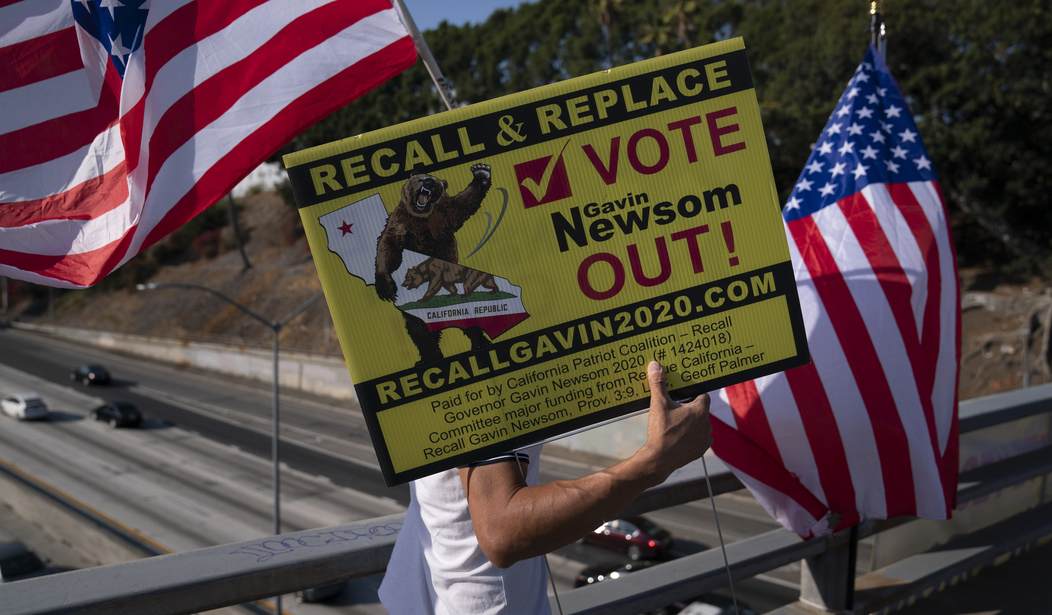The results of the California recall effort to oust Gov. Gavin Newsom might have Republicans and conservatives disappointed. There are several factors that played into the campaign’s loss, but there is also a silver lining.
According to exit polls, the outcome of the race is yet another example demonstrating that the Republican Party has a critical opportunity to start making inroads with the black community – especially black men. CNN’s exit poll found that almost half of Hispanic men and nearly a quarter of black men voted to remove Gov. Newsom.
While both of these percentages show that a majority of both Hispanic and black men voted to retain Newsom, the numbers should have been far more favorable to the Democratic politician. Even the aptly-named Washington Post commentator Charles Blow penned an op-ed in which he expressed concern about the Democratic Party’s slipping hold on black and Hispanic men. He noted, “the largest difference between men and women of any racial group was between Black men and Black women.”
Surprisingly enough, Blow acknowledged that “for many of these men, saying Republicans are racist or attract racists or abide racists isn’t enough” and blamed the disparity on the notion that “men have privileges in society, and some are drawn to policies that elevate their privileges.”
Ah, the old patriarchy argument.
Blow continued:
Some men liked the bravado of Donald Trump and chafed at the rise of the #MeToo movement. Some simply see trans women as men in dresses and want to carry guns wherever they want.
The question for Democrats is how do they lure some of these men back without catering to the patriarchy? From a position of principle, the party can’t really appeal to them; it must seek to change them.
You read that right. Blow is contending that if Democrats wish to attract minority men, they shouldn’t do so by making persuasive policy arguments; they must seek to change how we think.
However, Blow gets it right when he highlights the fact that many minority men have a “sense of disillusionment with the Democratic Party,” and its apparent failure to make progress on issues such as criminal justice reform and employment. But that’s not the only area in which the author makes sense. He also notes:
Democrats often resort to emotional appeals in election season, telling minorities that they must vote for liberal candidates as a defense, to prevent the worst. But many of these men believe that the Democrats are just as bad as the Republicans.
In his piece, Blow diagnoses the problem perfectly. But even though the issues he emphasizes are factual, they mean nothing if the Republican Party remains unwilling to make a concerted effort to win over voters of color – particularly black Americans. The party has been putting forth some effort in California in the Hispanic community. Unfortunately, the GOP continues to keep black voters at arm’s length distance.
But this is not the only example demonstrating that conservatives have opportunities to make inroads with the black community. In the 2020 election, former President Donald Trump increased his black support by 50%. This includes 18% of black men pulling the lever for Trump. He also made gains with Hispanic voters. This, despite the four-year activist media campaign to make him look like David Duke.
New York City’s Democratic mayoral primary also serves as an example of how the far-left is out of touch with minority voters. Eric Adams ran on a decidedly tough on crime platform and crushed his competition, especially with minorities.
As I’ve stated previously, if the GOP continues refusing to make a concerted effort to reach black and brown voters, it will become nearly obsolete. The California recall election – along with other examples – demonstrates that now is the time for the conservative movement to become the big tent it claims to be.












